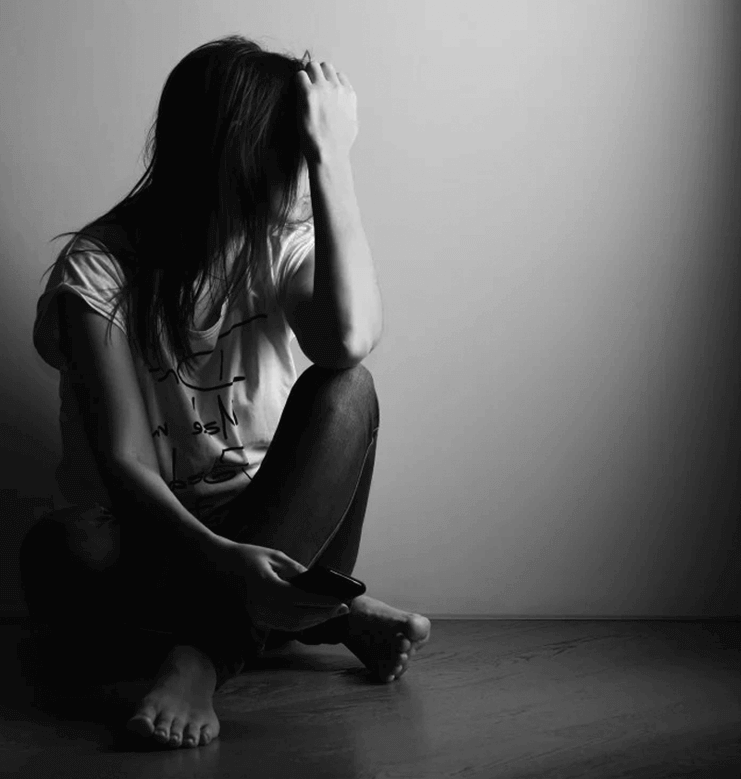
Mental Health
Mental health refers to the emotional, behavioural, and psychological well-being of a person. Mental health is all about how we feel, think and behave.
Mental health can affect relationships, daily life, and physical health. It is imperative to note that mental health is not just the absence of mental illness, but the presence of an an overall feeling of happiness, well-being and being able to function normally.
- Bipolar disorder: This is a chronic mental illness which is characterized by episodes of energetic, manic highs and extreme, sometimes depressive lows. Bipolar disorder can affect a person’s ability to think reasonably as well as his/her energy levels. Mood swings caused by bipolar disorder are more severe than the small ups and downs that most individuals experience on a daily basis.
- Generalized anxiety disorder (GAD): GAD goes beyond the regular everyday anxiety, such as being nervous before a presentation. Even when there’s little to worry about, it causes a person to become extremely worried about many things. A person with GAD may feel nervous about getting through the day and they may think things will not work out in their favour. GAD can sometimes keep people from accomplishing everyday tasks and chores.
- Obsessive Compulsive Disorder (OCD): OCD causes obsessions or constant and repetitive thoughts. The thoughts occur with unreasonable and unnecessary desires to carry out certain compulsions or behaviours. Although individuals with OCD may realize that their thoughts and actions are unreasonable, they just cannot stop them.
- Schizophrenia: This condition impairs a person’s perception of reality and the world around them. It interferes with the person’s connection to other people. The individual might have delusions, experience hallucinations and hear voices, be withdrawn and it can put him/her in a dangerous situation if left untreated.
- Persistent depressive disorder: This is a chronic type of depression also known as dysthymia. Although dysthymic depression isn’t intense, it can interfere with daily life. Individuals with this condition can experience symptoms for at least two years.
- Major depressive disorder (MDD): MDD causes feelings of hopelessness and extreme sadness that typically persists for more than two weeks. This condition is also known as clinical depression. Individuals with this condition may feel so hopeless over their lives that they may think about or try to commit suicide or self harm.
- Post-traumatic stress disorder (PTSD): This is a mental illness that is triggered after witnessing or experiencing a traumatic event such as verbal or physical abuse, war or natural disasters. Being easily startled or having flashbacks are some of the symptoms of PTSD.
- Social anxiety disorder: Also called social phobia, this causes extreme fear of social situations. People with social phobia can become very nervous about being around other people and may feel like they’re being judged and watched, interfering with their ability to go about their daily business in a normal way.
Symptoms
Although each type of mental illness has its own symptoms, many of the conditions share some common characteristics such as:
- Overeating or not eating enough
- Sleeping too much or having insomnia
- Distancing yourself from other people and favourite activities
- Feeling fatigue even with enough sleep
- Lacking empathy or feeling numbness
- Experiencing in-explainable body aches and pains
- Feeling helpless, hopeless or lost
- Drinking and/or smoking excessively
- Feelings of forgetfulness, confusion, angry, irritability, anxiety, sadness or fright
- Constantly arguing or fighting with friends and family
- Having extreme mood swings
- Having constant flashbacks or thoughts that you can’t get out of your head
- Hearing voices in your head that you can’t stop
- Having thoughts of hurting yourself and other people
- Being unable to carry out day-to-day chores and activities
Periods of emotional distress and stress can lead to an episode of symptoms which can make it difficult for you to maintain normal activities and behaviour. Such a period is known as a nervous or mental breakdown.

Mental Health Treatments
Mental health treatment does not follow a one-size-fits-all model, as what might work for one person, might not work for another. Instead, the treatment’s aim is to reduce symptoms, address the underlying causes and make the condition manageable. You and your doctor will work together to find a plan that is tailored to you. It may be a combination of treatments because some people tend to have better outcomes with a multi-faceted approach. A person with a chronic mental disorder may choose different options at different stages of their life.
Here are some common mental health treatments:
- Medication: There are four main categories of medications used to treat mental health disorders: antidepressants, antipsychotic medications, anti-anxiety medications and mood stabilizing medications. The type which is best for you will depend on the symptoms you experience and other health issues that you may have. Some people may try a few medications at different doses before they find something that is right for them.
- Hospital and residential treatment: Some individuals with mental health issues may need brief periods of intensive treatment at residential treatment facilities or hospitals. Most of the programs involve overnight stays for in-depth treatment. There are also daytime programs which are offered.
- Psychotherapy: Talking with a mental health therapist about your feelings, thoughts, experiences and ideas can help a lot. Therapists act as a sounding board and neutral mediator, helping you learn coping techniques and strategies in managing your symptoms. This form of treatment will help in identifying mental health issues and unhealthy behaviours or thought patterns.
- Lifestyle treatments and home remedies: There are alternative treatments which can be used alongside the mainstream treatments. Although they won’t eliminate mental health issues alone, they can certainly be helpful. They include sticking to your treatment plan, avoiding alcohol and other substances, and adopting a healthy lifestyle.
Mental health first aid
Mental health first aid is an education course that is designed to teach people about the risk factors and warning signs of mental health issues. The participants get to learn about approaches and treatments that can help people with mental health disorders.
Mental health exercises
Engaging in physical exercises such as swimming, dancing, walking or jogging boosts your cardio health and strength whilst being great for your mind too. They can help to reduce symptoms of anxiety and depression.
However, there are also other forms of exercises that you can do for your brain, such as:

- Listening to relaxing music can take away stress faster than relaxing whilst doing nothing.
- A healthy diet can boost your brain function and help you feel better.
- Striking a power pose such as hands on hips can help in a temporary drop of feelings of social anxiety.
- Practising progressive muscle relaxation whereby you tighten and then slowly relax various muscle groups. You may combine the exercise with other techniques such as breathing exercises or listening to calming music.
- Finding a yoga pose can boost self-esteem and help increase bodily energy.
- Relying on friends and family as a support network can limit anxiety attacks.
- Practising mindfulness.
The Recovery
Most people with mental health issues find treatments that are successful, meaning that they get better. Although some mental health issues are chronic, they can be managed with proper treatment and intervention.
Recovery from mental health disorders require ongoing attention to your overall and mental health. Some cases require medication to be taken on a regular basis while with others, you can stop taking them after a period of time.
Recovery is different for different people. What recovery means for you is different from what it may mean to someone else.

Mental awareness
Mental health is an important concern for healthcare professionals. Assuring individuals with mental health conditions that they are not alone and inviting them to seek treatment from a professional is vital. Treatment of mental illness is key to relieving symptoms and maintaining an active, healthy life.
Book a consultation with Dr Ali Razzak, leading Family Medicine Consultant and Aesthetics Expert in Dubai to know your options, and the next steps.
- Address The Residences at Marina Gate 1 King’s College Hospital, Dubai Marina
- Email bookings.mmc@kch.ae
- Phone +971 04 581 3222
- WhatsApp +971 50 839 5920
